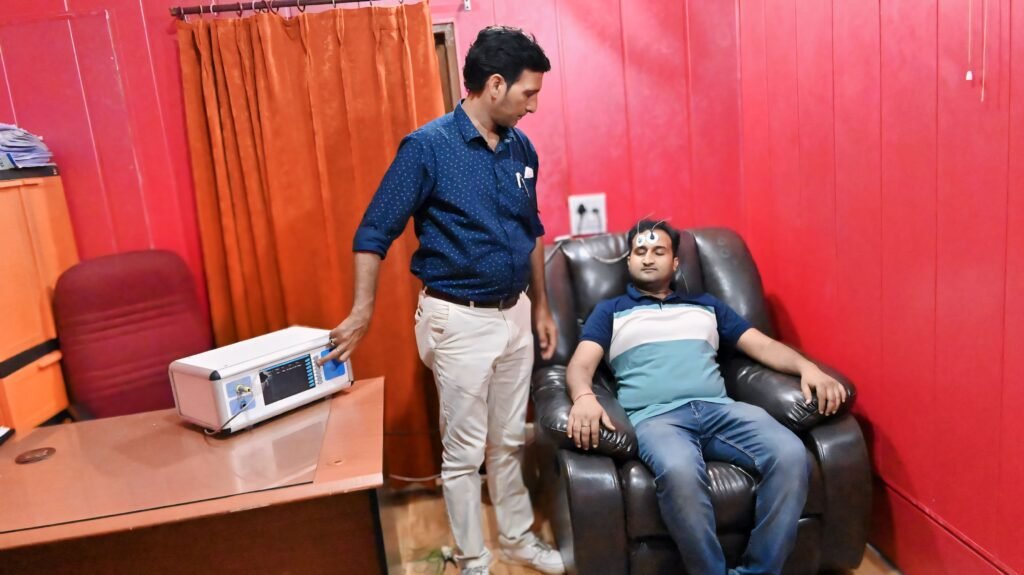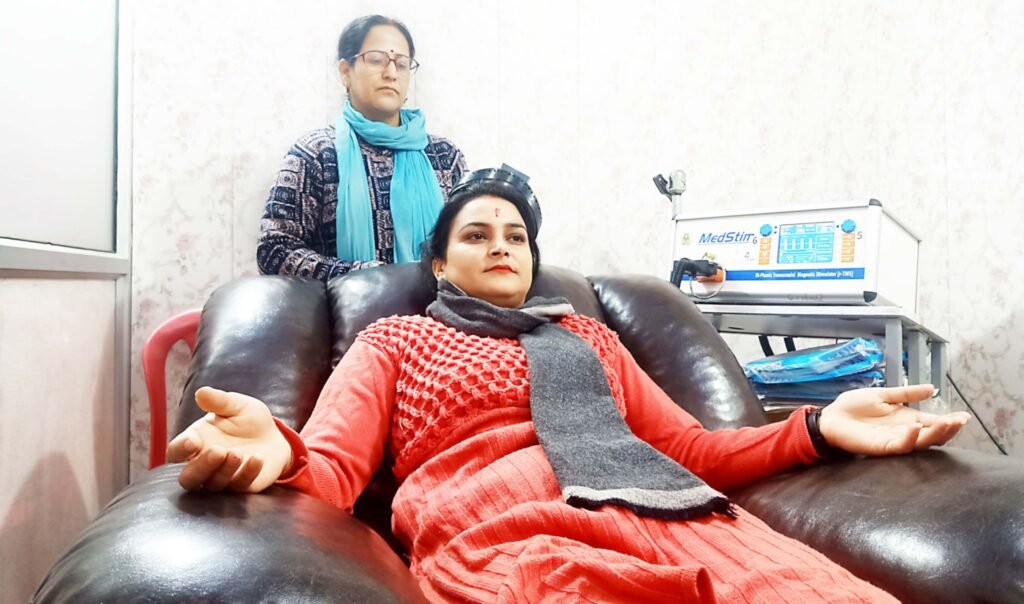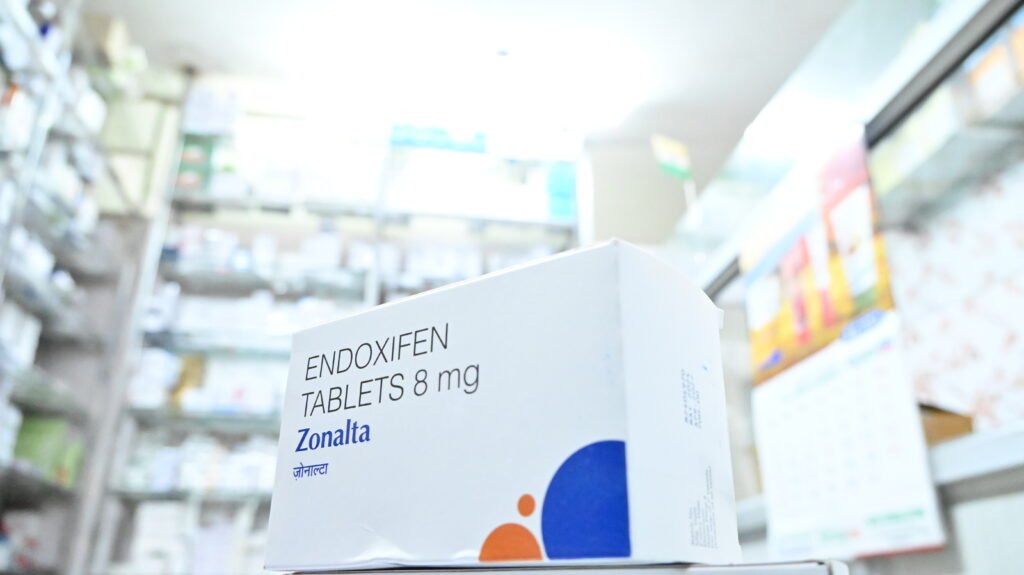Biofeedback

Biofeedback therapy is a technique that can be a valuable tool in psychiatric treatment. By measuring muscle activity, biofeedback therapy helps individuals gain control over physiological responses associated with conditions like anxiety, stress, and tension-related disorders.
Through real-time feedback, patients learn to consciously relax their muscles and reduce physiological symptoms. When combined with other treatments, such as cognitive-behavioral therapy (CBT), biofeedback therapy can be an effective way to manage symptoms by improving awareness and control over bodily stress responses.
repetitive Transcranial
Magnetic Stimulation (rTMS)
Repetitive Transcranial Magnetic Stimulation (rTMS) is a non-invasive brain stimulation technique that has shown promise in treating 1 various psychiatric conditions. Particularly effective for major depressive disorder (MDD), anxiety, and certain forms of psychosis, rTMS involves applying magnetic fields to the prefrontal cortex to modulate neural activity. By targeting specific brain circuits, rTMS can help restore balance in individuals experiencing mood disorders or psychotic symptoms. Often considered for patients who haven’t responded well to traditional treatments like medication or psychotherapy, rTMS offers a relatively low-risk alternative. Its ability to relieve symptoms, stabilize mood, and improve quality of life has led to its increasing acceptance as an adjunctive or alternative treatment in mental health care.

Pharmacy and Medication

At Help Psychiatry Centre, we understand the importance of convenient access to medication. Our on-site pharmacy ensures that patients can quickly and easily obtain their prescribed medications. By eliminating the need for separate trips to external pharmacies, we save our patients time and reduce stress.
Our pharmacy team works closely with our psychiatrists to ensure accurate prescription fulfillment and provide personalized guidance on medication usage, side effects, and necessary adjustments. This integrated approach allows us to deliver comprehensive mental health care under one roof, promoting continuity of care and supporting our patients’ recovery journey.
Galvanic Skin Response (GSR)
Galvanic Skin Response (GSR) therapy, also known as electrodermal activity (EDA) monitoring, is a biofeedback technique used in psychiatric treatment. By measuring tiny changes in skin conductivity, GSR helps individuals become more aware of their stress and emotional responses.
This technique is particularly useful for treating conditions like anxiety disorders, PTSD, and depression. By monitoring GSR in real-time, both therapists and patients can track emotional responses and develop effective coping strategies. This allows for a more targeted and personalized approach to therapy, ultimately leading to improved mental health outcomes.
